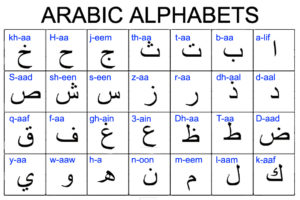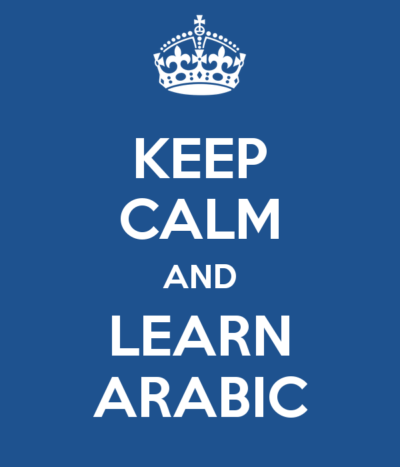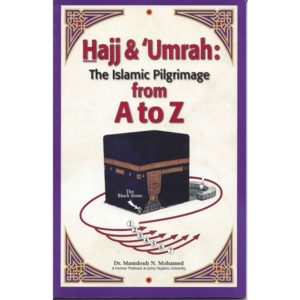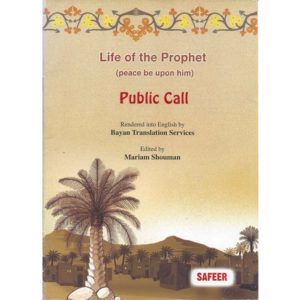Learn Arabic Langauge:
Arabic is a truly international language and it is the first language of hundreds of millions of people across the globe. In order to learn this great language click Here!!
The Importance of Learning Arabic Langauge:
Arabs have always prided themselves on their language and, in particular, their poetry. Poetry was the primary medium of ancient times through which tribes were praised, enemies were lampooned, messages were sent, and much more. At the fairs of cUkāz, poets would read and listen to poetry as well as critique it as an inter-tribal custom.
But with the arrival of God’s Messenger (PBUH), the language took on a whole new importance. It was a prerequisite to scholarship and knowledge of it became a matter of the utmost seriousness:
“Learn Arabic as you learn the [Islamic] obligations and practices.” [Ali b. Abi Tālib]
And erring in it was a matter of shame and even misguidance; the Prophet (PBUH) is reported to have said the following after hearing a man make a grammatical mistake:
“Guide your brother, for surely he has erred” [Prophet PBUH]
To illustrate the nature of grammatical mistakes: A man once said “O ye who is seen but cannot see” referring to God and trying to say “O ye who sees but cannot be seen.” So a blind man answered him, “Here you go; that’s me.”
As Islam unified the Hejaz – and later the known world – it became the dominant ideology and scholarship in it was the highest honour. Therefore, scholarship of the language flourished and proficiency in it was vital in order to avoid misquoting the Qur’an, the sayings of the Prophet (PBUH), and secondary books of scholarship. Many authorities went as far as to say that even something as simple as responding to God’s query (ألست بربكم) “Am I not your lord?” with (نعم) “Yes” as opposed to (بلى) “Indeed!” was an act of apostasy!
The Early Development of the Language:
But systematic codification of Arabic didn’t begin for quite some time. The caliph Ali (d. 661) is popularly cited as the common ancestor to the study. It was then his student Abu Aswad Ad-Duwali who began to delve into grammar and Mucāz b. Musallam Al-Harrā, a student of Abu Aswad, who began to delve into morphology. Mucāz then trained the caliph Abdul Malik b. Marwān (d. 705). And Abu Aswad also had many disciples to his name.
A few decades down the road, these disciples yielded Khalīl b. Ahmad (d. ca. 776) whose works in prosody and grammar are famous. He is a huge figure in the study of the language. One of his students was the father of classical Arabic, the Persian, Sibawayh (d. ca. 796) whose book, know only as Al-Kitāb, is the most well-known of them all. A four volume treatment of the language, it is the primary basis for all future works on the language and is a framework for the methodology in the study. Sibawayh’s book constitutes the Big Bang of scholarship on the Arabic language.
Following Sibawayh were other important figures such as Al-Kasā’i. It is after this initial codification that grammarians slowly began to divide into the two camps of Basra and Kufa. By the end of the Arab golden age at around the 10th century, these groups became well established and were actually rivals. There was so much animosity between them, in fact, that one would give a ruling only to oppose the other. But despite these fierce conflicts, the Basran camp came out dominant by the 10th century. By this time, most of the language had been systematically codified and methodologies were now in place thanks to seeds sewn by Sibawayh and the dint of pious men and women who followed him. Further medieval work on grammar was expansion on these Basran frameworks.
Further Medieval Development and Important Figures:
One of the students of Sibawayh was the famous Al-Akhfash Al-Awsat (d. ca. 830), a grammarian of Basran inclination like Sibawayh himself. Among the students of Al-Kasā’i was the famous Al-Farrā (d. 822) who was of Kufan inclination.
Following these were many grammarians, including Mubarrad (d. 898). He authored the famous Al-Muqtadab. Al-Zajjāj, roughly contemporary to Mubarrad, was followed by Abu Ali Al-Fārsi (d. 987), As-Sarrāj (d. 929), Al-Zajjāzi (d. 950), and Abdul Qāhir Al-Jurjāni.
Further down the chain – after the the Basran frameworks had been set – is Zamakhshari (12th century) who authored the profusely cited Al-Mufassal, Ibn Al-Hājib (13th century) who authored the much commented on Al-Kāfiya, and Ibn Mālik (13th century) who authored the infamous Al-Khulāsa, more popularly known as Alfiyya. And contemporary to these figures was Ibn Hishām who authored many famous books including the often cited Qatr An-Nada and Mughni Al-Labīb.
By the 13th century great scholars had come and gone, leaving masterpieces of grammatical theory in their wake. Others came and went, but it was six hundred years later that Arabic saw a groundbreaking change in its study; the industrial revolution.
Arabic Letters | Arabic Alphabets:

The Arabic Letter Qaf | Learn Arabic Online:
This is one of the few Arabic letters which isn’t found in the English alphabet and requires some imitation to pronounce. The Arabic letter ق is named قاف (qaf).
The Arabic qaf sound is slightly different to a ‘q’ in for example, ‘queen’. When pronounced, it sounds a bit like the start of ‘caught’ but further back in the throat. Here is an example of the pronunciation:
When travelling around the Middle-East you are most likely to encounter this letter in stop signs on the road.
Some more Arabic words with qaf that you might know
Here examples of words in the English language that have come from Arabic. Normally, the ‘q’ in English is followed by a ‘u’, as in queen. This is not the case when the words have an Arabic root.
burqa
برقع
A veiled garment worn by some Muslim women
From: Urdu and Persian burqa, from Arabic burqu`
faqir
فقير
A Muslim ascetic
From the root f-q-r, to be poverty-stricken
niqab
نِقاب
A veil for the lower-face worn by some Muslim women
From the root n-q-b, to veil one’s face.
qadi
قاضى
A Muslim judge
From the root q-D-aa, to settle something.
qaid
قائد
A Muslim tribal chief
From the Arabic ,’leader’ or ‘commander’ with the root q-aa-d, to lead
qasida
قصيدة
An Arabian poem of praise or satire
From the root q-S-d, direct, designed and economical
souq
سوق
An Arab marketplace
Arabic سوق – souq or market







